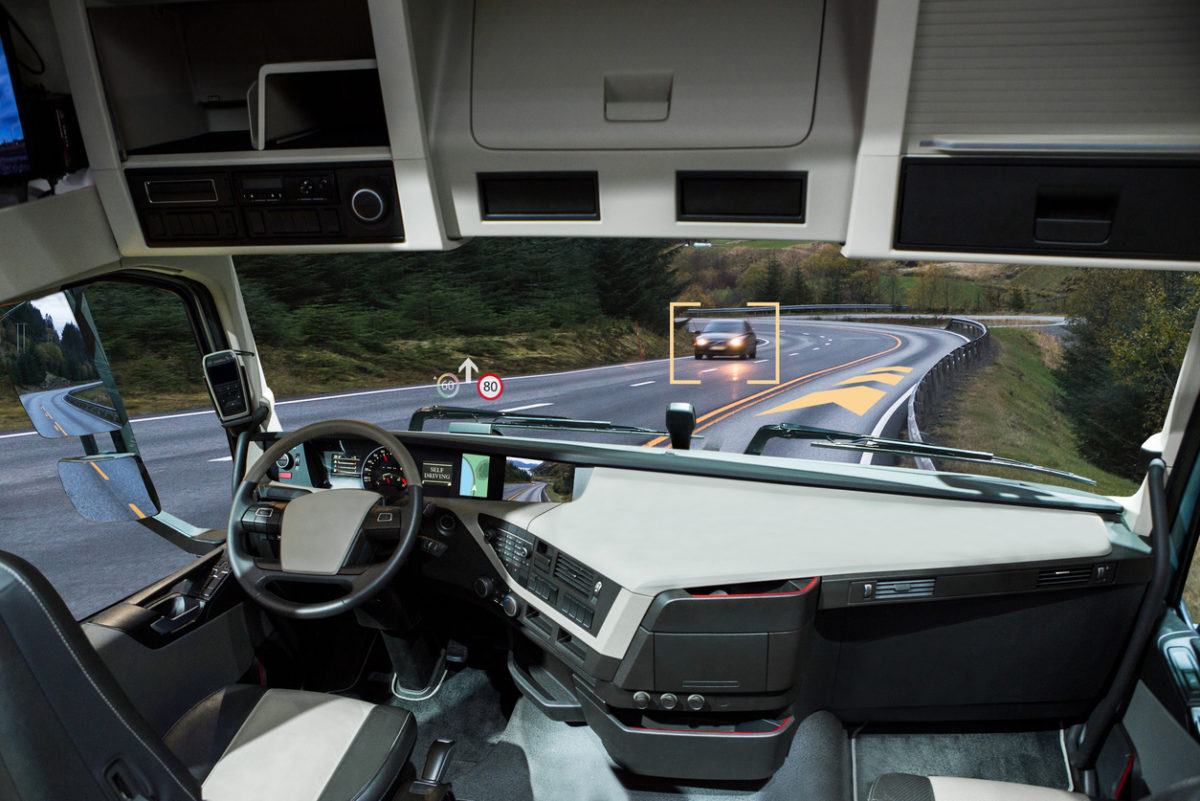Self-driven or autonomous vehicles have been a staple of science fiction since the early part of the 20th century. Today, advances in technology have brought autonomous vehicles to life. In the commercial trucking sector, these autonomous vehicles have the potential to forever change the industry. Will those changes be positive, or will the impacts of self-driven trucks threaten the American trucking workforce? How will autonomous trucks shape the trucking insurance industry? While the answers to these questions are not easy to come by, industry analysts and regulatory agencies are already preparing for a future where autonomous vehicles dominate American roadways.
Autonomous Truck Technology
Autonomous vehicles harness the power of computers and a suite of cameras, sensors, and Global Positioning System (GPS) receivers to navigate roadways. Vehicle developers have partnered with manufacturers and suppliers to create a wide range of test platforms capable of autonomous operation. The concept of vehicles that can operate without human input has been dreamed about for decades. Those dreams are quickly becoming a reality. While these vehicles continue to demonstrate their abilities in testing environments, it is unclear when they will be ready to take on real-world responsibilities in transporting goods on American highways. The gold standard of autonomous driving has been developed by the Society of Automotive Engineers (SAE); its “Level 4” standard means that no human interaction is required during the operation of these vehicles under most road conditions.
One of the major concerns surrounding autonomous trucks is their safety and the potential liabilities truck owners may face if autonomous vehicles are involved in collisions. The trucking insurance sector is scrambling to develop solutions to these risk exposures, but much work needs to be done to protect owners and operators against liabilities.
Impacts to Trucking Industry Workers
When any new automation technology is introduced, questions about how it will impact the American workforce arise. For autonomous commercial vehicles, regulatory agencies like the Federal Motor Carrier Safety Administration (FMCSA) have already begun to discuss the potential impacts to truck drivers. The FMCSA’s Office of Analysis, Research, and Technology presented information on autonomous vehicles during its annual update in March 2021.
Much of the concern is centered on worker displacements and whether the widespread adoption of automated vehicle technologies will threaten the livelihoods of drivers. As an essential part of the U.S. economy, truck drivers are alarmed by the prospect of being replaced in favor of self-driving trucks. The FMCSA, along with agencies like the Department of Labor and the U.S. Department of Transportation, suggest that trucking companies begin to prepare for the arrival of autonomous vehicles by:
- Identifying opportunities where human workforces can be shifted.
- Exploring training opportunities for drivers displaced by autonomous trucks.
- Researching new jobs and job classes that may be created through the adoption of autonomous vehicles.
Safety of Autonomous Vehicles
In testing environments, autonomous vehicles have demonstrated capabilities that rival human-operated vehicles. Despite rigorous testing, concerns about safety remain. The FMCSA has been evaluating its role in safety and enforcement of autonomous vehicles since 2017. Among its findings, regulatory factors that must be addressed include:
- Cyber security of vehicles and their computer operating systems
- Vehicle licensing
- Hours of operation standards
- Roadside inspections
- Enforcement of operational violations
No formal proposals have been published by the agency, but it is clear that the regulatory environment must shift to account for unforeseen liabilities presented by self-driven vehicles. If an autonomous vehicle is involved in a collision, who is liable, especially when there is no driver? Trucking insurance coverage will also have to adapt to the new operational environment, protecting trucking companies and their employees against liability risks. The future of trucking may hinge on autonomous vehicles, and as the technology is refined, it will have far-reaching impacts on the trucking industry.
About Western Truck Insurance Services
Western Truck Insurance Services is a commercial truck insurance agency with roots dating back to 1954. We have evolved into a highly respected, professionally managed, truck and transportation insurance brokerage. The hallmark of our organization is our desire to provide unparalleled service. We go way beyond what you expect to receive from an insurance brokerage. Equipped with state of the art automation, Western Truck Insurance can provide you with lightning fast truck insurance quotes, customer service, Insurance certificates, and coverage changes. Contact us today at (800) 937-8785 to learn more!

